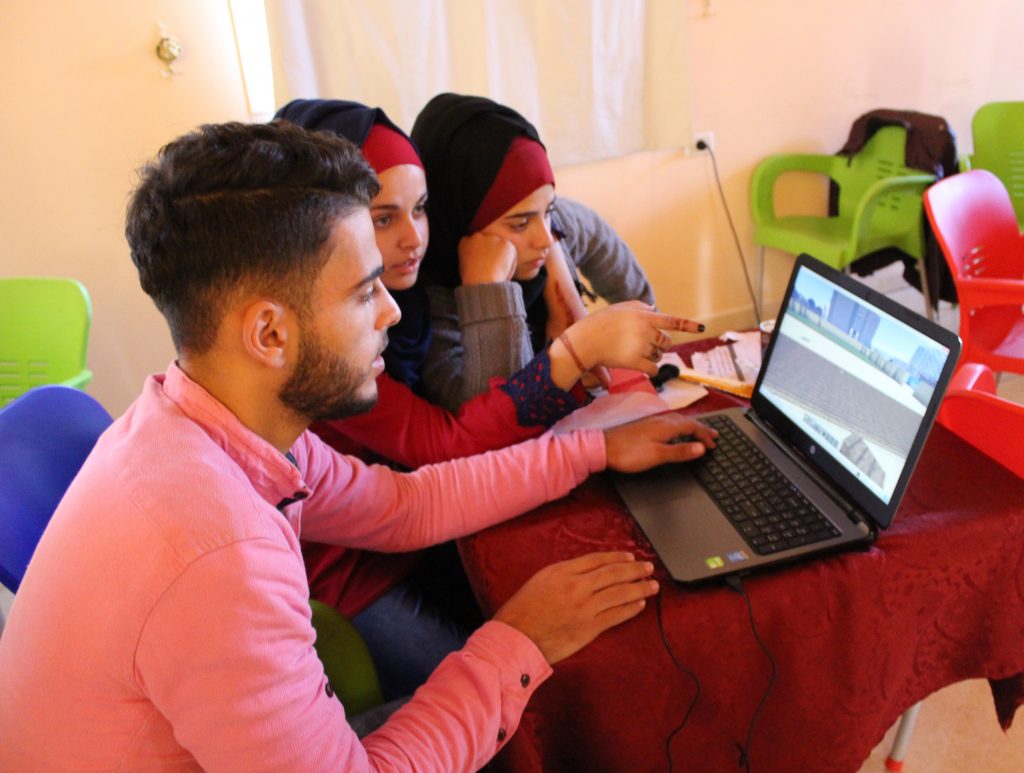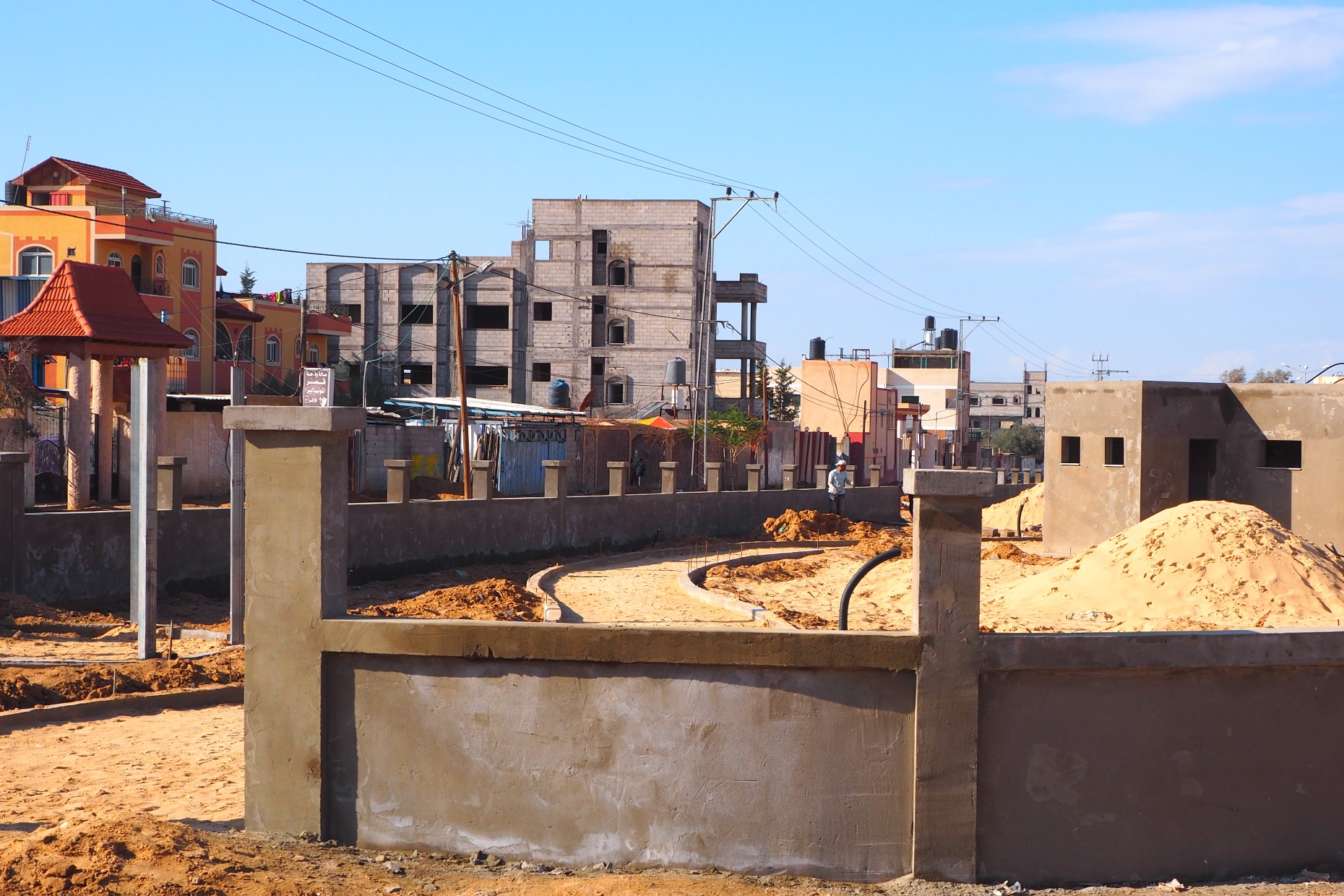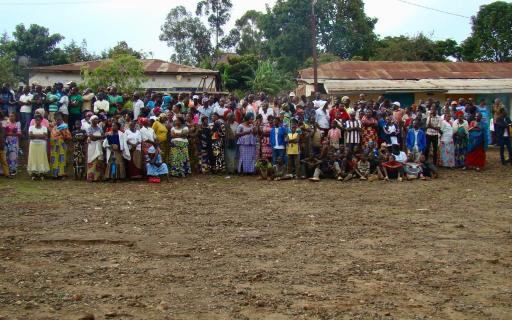The context

Ten years of blockades and several cycles of violence have had a serious effect on the Gaza Strip, which still bears the material and human scars of the hostilities in summer 2014 and the regular attacks that followed. Thousands of houses, schools, universities and mosques were damaged in these bombings.
The reconstruction process is well underway, but women and young people are scarcely involved in urban planning, particularly in integrating the issue of safety in public places. However, when we think that at least 70% of the population of Gaza is aged between 0 and 29, it would be sensible to pay greater attention to them by making them more involved. Like women, young people can make a valuable contribution to discussions on the future of their cities and to the issues of mobility and safety in public places.
The solution
This is why, with the support of Belgium, the United Nations Programme for a better urban future (UN-Habitat) is using the construction video game Minecraft. The game is a kind of digital Lego and allows players to create a three-dimensional environment block by block. A global success with 50 million games sold, Minecraft is a powerful tool, globally speaking, for involving disadvantaged young people from southern countries in the urban development of their city. UN-Habitat understands this and has therefore entered into a partnership with Mojang, the company that created the video game, to develop a platform for urban innovation called "Block by Block". This initiative gives young people an opportunity to have their say on what they think the cities should look like. So in Gaza, dozens of young people of both sexes have learnt to play Minecraft so they can design a public space that meets the needs of their community; they did this during three weeks' training on gender equality, digital tools and civic engagement linked, for example, to the inclusion of people with disabilities.
But that's not all. As part of its "Digital for Development - D4D" strategy, Belgium is also supporting an appeal launched in Gaza in early 2017. Its goal is to create several public spaces in the most disadvantaged parts of the Gaza Strip. Young people and women will be involved in the entire process. In this way, Belgian Development Cooperation intends to show that innovative solutions and digitisation can help to create a more inclusive society that respects the democratic rights of the most vulnerable groups.
The result
 A garden for all... Until recently, this was a distant dream for women and young people in Al-Shoka, Beit Lahia and Al-Zawayda, three districts affected by the war and violence in Gaza. It took three female architects and a group of young people to rebuild the public gardens in the three districts.
A garden for all... Until recently, this was a distant dream for women and young people in Al-Shoka, Beit Lahia and Al-Zawayda, three districts affected by the war and violence in Gaza. It took three female architects and a group of young people to rebuild the public gardens in the three districts.
"I was thrilled to be part of the project to rebuild the garden in Al-Shoka," remembers Dalia Osama, a young architect from Rafah, a town in southern Gaza bordering Egypt. She is passionate about her work and about gender issues, and a few years ago replied to an advertisement looking for female architects to design a public garden in Al-Shoka, a small marginalised district of Rafah. A few weeks later, she got her dream job. It was just before the 2014 war, just before the destruction of the garden, which had until then been the only green space in the district.
Since July 2017, as part of a joint UN Women and UN-Habitat programme funded by Belgium, Dalia Osama and two other architects, Samah Al-Nahal and Nihal Zourob, have been working to redesign the gardens in Al-Shoka, Beit Lahia and Al-Zawayda, based on the winning designs from the Minecraft game, which were created by children.
What most excited Dalia Osama about this reconstruction process was that the gardens have now become a place that everyone, including women and girls, can visit without fear of harassment. Now, everyone is delighted to be able to visit the gardens again.
It was in 2018 that the three districts re-opened the public gardens, designed by the female architects based on ideas submitted by residents. According to Gateway, a social enterprise based in Gaza that taught inhabitants how to use digital technology as a tool for civic engagement, more than half of the participants were women aged between 20 and 27.
"The women and girls from the three districts asked for proper lighting, fences, lawns and trees, as well as separate areas for women and families," explained Mariam Abu Alatta, who is responsible for the protection of women and children and a partner in the implementation of the joint programme. Everyone now feels a sense of pride and ownership in these public gardens that they helped bring back to life.
Thanks to these gardens, women from Gaza, who are not usually supposed to go out alone, can meet in a public space where their children can play, and enjoy a drink or ice cream at one of the small cafeterias. The solar panels on the roofs of the buildings in each garden provide electricity for the cafeteria, toilets and lights. The free WiFi network provided by the municipality also attracts young people, who come to the park to relax and play sport.
"The public garden is the result of an innovative approach that uses digital technology and civic engagement to promote the participation of women and young people in the reconstruction efforts in Gaza," explained Heba Zayyan, manager of the UN Women office in Gaza. ""
She continues:
Now that we have all built it together, it is no longer a men's garden, but a garden for all.
Partners
- UN-Habitat
- UN Women


